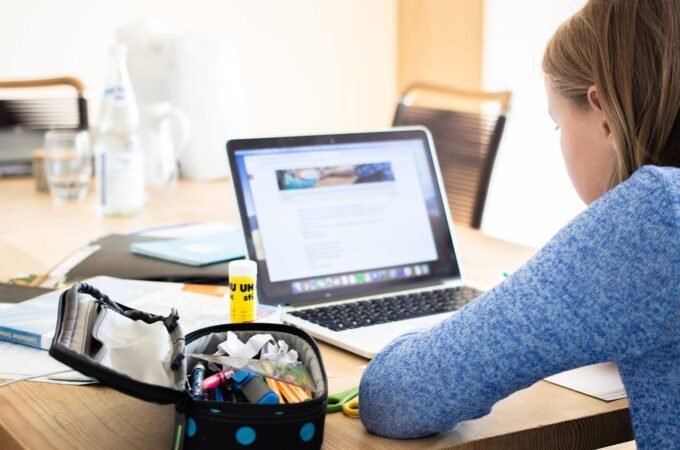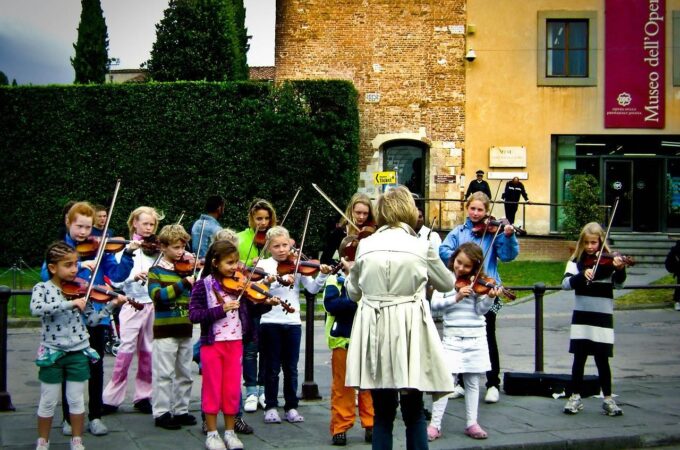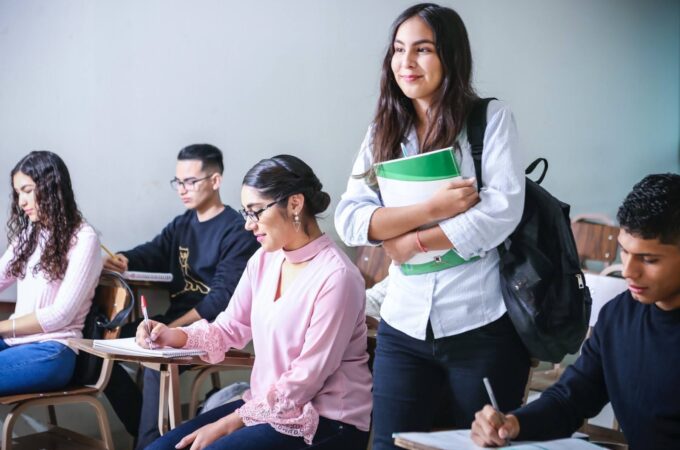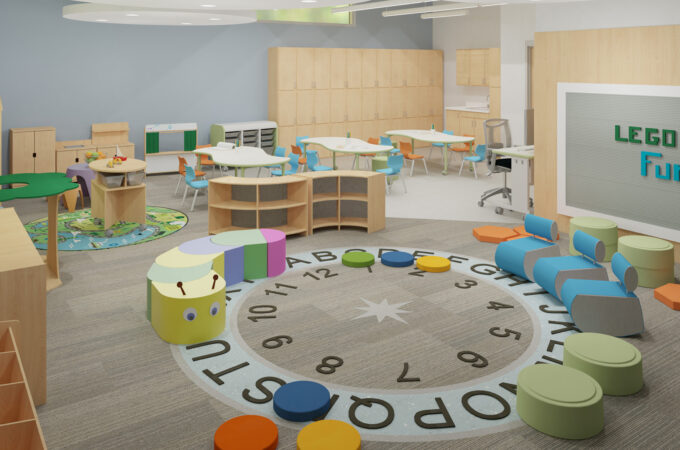
The ‘Unschooling’ Movement
According to Mary Griffith, author of “The Unschooling Handbook”, “unschooling” means learning what one wants, when one wants, in the way one wants, for one’s own reasons. But an unschooling day is, in its own way, very structured and focused. Kids don’t spend their day playing casino online. They meet peers, go on trips, work on subjects that interest them on their computer, read books, take walks and do other activities that promote an environment that fosters learning – and the love of learning.
Unschoolers and homeschoolers approach learning differently. In a homeschooling environment the parent acts like a teacher in the classroom. The parent — guided by state and national standards — plan lessons, assign homework, and grade assignments. An unschoolering day is whatever the student chooses. Griffith explains that “choice and control reside with the learner.”
Philosophy

Unschooling rests on the faith that children are naturally curious. Children, unschooling advocates say, will naturally follow their interests so they learn as much as a child in school or in a homeschooling environment, but each child learns in his or her own way. Unschoolers are free from the controls and burdens of traditional education. The parent takes his/her cues from the child, the child’s passions and the child’s interests. The learning then proceeds according to the child’s needs and desires.
There have been multiple studies done on the success of unschooling. Results show that children who experience an unschooling environment learn as well as, and as fast as, children schooled in traditional or homeschool manners. Peter Gray, a Boston College psychology professor, goes one step further. He says that traditional schools create an “abnormal environment.”
“What you see a child doing until the age of 4 — that is unschooling! Look at what that child has learned. There is no reason to believe that this ability to make mental connections, to ask questions, would disappear by the age of 5 and 6,” Gray said.
A University of Colorado study supports Gray’s hypothesis. Researchers at the U of C investigated the cognitive processes involved in goal-oriented behavior or the effect that less-structured activities had on children’s self-directed executive functioning. The study concluded that children who had more time to engage in free play showed better self-directed executive functioning skills.
College

Another concern involves college prep. Parents may assume that their children will not be well-prepared for college if they are unschooled. They worry that, by limiting their child’s exposure to a classroom setting, the child won’t be able to excel in the most traditional academic setting of them all.
Psychologists Gina Riley and Peter Gray surveyed 232 families who had unschooled their kids. They found that 83 percent of the children went on to study at a post-secondary institution. The survey concluded that “Almost half of those had either completed a bachelor’s degree or higher, or were currently enrolled in such a program; they attended (or had graduated from) a wide range of colleges, from Ivy League universities to state universities and smaller liberal-arts colleges.”
Furthermore, “getting into college was typically a fairly smooth process for this group; they adjusted to the academics fairly easily, quickly picking up skills such as class note-taking or essay composition; and most felt at a distinct advantage due to their high self-motivation and capacity for self-direction.”
Legalities

Legally, unschooling is classified as a form of homeschooling. Homeschooling is legal in all 50 U.S. States. The rules, requirements and regulations of each state regarding homeschooling differ. Some states, like Ohio, depend on the school districts to enact policies for homeschooling. The policies in some districts can be very difficult to maintain. Other states, such as Texas, are relatively lax and don’t have any requirements for reporting, documenting or testing the students. In Rhode Island, parents are required to report and document large amounts of information test scores and have their curriculum approved. State officials are also allowed to request home visits to homeschooling homes.
Growing

The unschooling movement is growing and is almost mainstream. Many parents who officially call their educational program “homeschooling” do, in fact, unschool, at least part of the time. Some don’t even like the term “unschooling” because it refers, they say, to what they don’t do instead of what they actually do.
One unschooling parent explains his family’s philosophy. “We live as if school doesn’t exist. People are really brainwashed into seeing things in school form, with life breaking down into subjects. This life is about freedom and not having limits. It’s about really trusting your kids. And it’s amazing what they do.”
Unschooling parents believe that, left alone to follow their own interests, children can and will learn everything that they would learn in school. They don’t care, however, if the kids learn specific skills at “benchmarked” times – ages that the “experts” say that they should master certain skills or information. They trust that the children will acquire the information and skills when they’re ready. The parents say that their job is not to be the children’s judge or teacher but to be a facilitator and partner in helping them follow their passions.
Statistics

Over the past decade, the number of children home-schooling, along with the number of families practicing some form of unschooling, has skyrocketed. The National Center for Education Statistics reports that the number of children learning at home is now 1.7 million, up from 1 million in 2003. Many researchers believe the true number is significantly higher.
Some surveys have found that up to 50 percent of home-schoolers embrace some type of unschooling. This can range from some families who completely unschool in a total hands-off approach to parents who incorporate some of the ideas of self-directed learning but still continue to set some goals and limits for their children’s education.
Observers say that unschooling is no longer a “hippie” educational alternative. They believe that it taps into changing mainstream values surrounding parenting and children, individuality and institutions, and the best way to seize the American dream. It’s no longer seen as a rebel alternative to educating kids and families who unschool are generally mainstream, middle-class, and educated.
Critics are unimpressed. “I think there is a broader threat to social cohesion that we’re all living through right now,” says Kevin Welner, professor at the School of Education at the University of Colorado Boulder and director of the National Education Policy Center. “People see others who are different or who disagree with them as some existential threat. These threats are larger than any threat posed by a small group opting out of formal education. But strong public schools can be a bulwark against the broader threats to social cohesion.”




